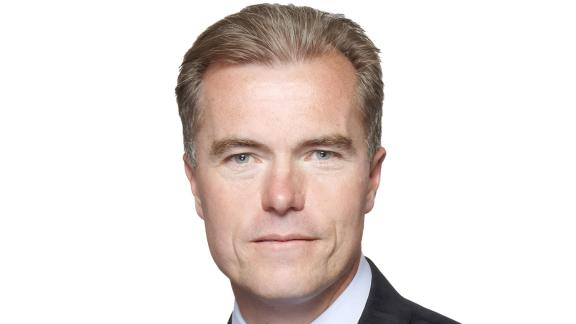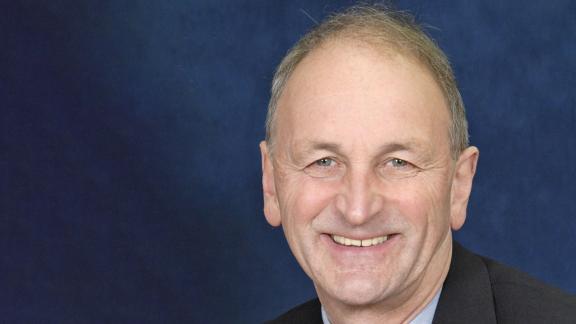A more democratic NHS?

In weighing up the hopes for better integration and collaboration against concerns around operational pressures, Matthew Taylor discusses the potential positive impact that local government can have in health service decision-making.
How will integrated care systems change the health service? There are hopes for a better integration, more collaboration and a greater focus on health outcomes and inequalities. Equally, there are concerns that the weight of operational pressures or resistance from vested interests could frustrate some of the ambitions of system and place working. But one force for change, still underestimated, is surely the greater direct engagement of local government in health service decision-making.
Integrated care partnerships and place and locality bodies will give councils a direct say in how the NHS determines its priorities and spends its money. There will, no doubt, be tensions and misunderstandings, reflecting the differences in the cultures and accountabilities of the two sectors, but among nearly all the leaders I speak to there is enthusiasm for greater collaboration and integration. As we saw at a recent Confed workshop hosted by our place leaders’ network, this enthusiasm is shared by many council leaders.
local accountability also offers two game-changing possibilities not only to empower local health leaders, but to change the culture of NHS
The democratic accountability of local authorities is sometimes seen as a potential problem; changes in political control can make long-term partnership more difficult to sustain, and politicians may be more prone to unhelpful grandstanding (including sometimes in response to NHS reconfiguration proposals). But local accountability also offers two game-changing possibilities not only to empower local health leaders, but to change the culture of NHS.
A step change in public engagement
The first lies in public engagement. Starved of cash for over a decade, but still seeking to make an impact on behalf of local people, councils have been forced to do difficult things and have hard conversations. There is a wide range of regulation I must abide by, from planning to parking to how I sort my rubbish. The rules often change. Recently, for example, drivers have had to adjust to new low traffic neighbourhoods (LTNs), closing off roads and confusing Satnavs.
These things are often controversial. There may be angry letters to the paper, outrage in the neighbourhood WhatsApp group, petitioning outside the supermarket. The leader of my London borough received death threats from residents opposed to LTNs. But this is the day-to-day reality of local politics. Part of the job of politicians is to shape public expectations, working with people and communities to explain why tough choices must be made and sometimes adapting those choices in the face of public views. And local politicians can always remind citizens that those they elected can be removed by the same process.
…to achieve a step change in health outcomes in a context of growing demand and limited capacity, we will surely need to have more challenging conversations with patients and the public
Health service leaders are not strangers to controversy, particularly when services are reconfigured. There are many ways in which local health organisations engage with patients and citizens. But it tends to be more narrowly focused, more about what the service is doing rather than what should or could be expected of the two-way relationship between service and citizens.
Yet, if the NHS is to recover, to achieve a step change in health outcomes in a context of growing demand and limited capacity, we will surely need to have more challenging conversations with patients and the public. There are leaders, including clinicians, who have grasped this nettle but many more who have not had the support or, perhaps, confidence to do so. This can lead to noteworthy differences in practice. To take one small example, some trusts have agreed with dialysis patients that they should whenever possible make their own way to hospital (being reimbursed for petrol, parking charges or taxi fares) while others continue to offer ambulances.
One of the ideas I know Dr Claire Fuller has been attracted to in her primary care stocktake is Wigan- style deals in which deep engagement with the community could lead local neighbourhood teams to explicitly agree mutual expectations between citizens and community organisations on the one hand, and health and care services on the other.
…prevention and treatment itself is more likely to be effective if people are seen as partners not merely passive service recipients
Greater patient and public engagement can bring benefits at every level. Systems can undertake formal consultation or, better still, as more are doing, use deliberative techniques like citizens’ juries to engage people in decisions about priorities or configuration. Places can work with citizen and patient groups to explore how to improve care pathways or service design. Localities can develop a fully co-productive approach with community groups and representatives, as I saw recently in Gloucestershire ICS’s integrated locality partnerships. And, of course, prevention and treatment itself is more likely to be effective if people are seen as partners not merely passive service recipients.
But engagement is hard. It means meeting the public on their terms, acknowledging their experiences, seeing the strengths and assets communities possess, not just their problems. Research suggest leadership is critical. For some, a world of greater accountability and engagement will be an opportunity, for others it may seem onerous or even dangerous. It is important to see engagement as an integral part of service, not an occasional requirement. One public health director talks about public engagement as ‘dating’ but public involvement as ‘marriage;’ things will be said by the public and the professionals that make each other uncomfortable, but they are committed to work together to get through it and they build mutual respect by doing so. At the Confed we will champion the pioneers and offer concrete advice and support to those setting out on this journey.
Towards greater pluralism?
One implication of deeper system, place and locality engagement must be that local leaders have more discretion. After all, who wants to do a deal with someone who has no discretion? This points to the second impact of NHS power sharing with local government. Ultimately, although England is a very centralised country by international standards, the local accountability of council leaders gives them the right to disagree with, oppose, and sometimes actively resist national policy. If Andy Burnham or Sadiq Kahn disagree with Michael Gove, they can always say so and sometimes say ‘no.’ Even in a small district council run by the same party as national government, a disgruntled leader is entitled to share their frustration about national policy with local people, often through social media or the local press.
A danger with democratic accountability is that it can slow down hard decisions; something NHS leaders are all too aware of as they have seen service reconfigurations blocked
A danger with democratic accountability is that it can slow down hard decisions; something NHS leaders are all too aware of as they have seen service reconfigurations blocked. While council services are important to people, the shuttering of a library or controversial planning permission won’t tend to be as emotive or politically freighted as closing an A&E department. Conversely, if through their detailed engagement, councillors on ICPs or place bodies come to accept the case for NHS changes, they can help to persuade MPs and ministers to do the right thing.
More broadly, public dissent with the centre is much more dangerous – indeed career-threatening - for NHS leaders. This is partly a reflection of the centralised hierarchical nature of the NHS but also, crucially, because NHS leaders are unable to claim any direct democratic legitimacy.
The same is true nationally. One of the important core roles of NHS England and NHS Improvement (NHSEI) is representing the system upwards to the Department of Health and Social Care, Downing Street and the Treasury. NHSEI officials understandably feel misjudged when they are privately criticised by the service (or publicly by people like me) for decisions they fought against within the corridors of power but are now required to defend as if their own. Ultimately however, as an arm’s-length body, it is no easier for NHSEI to publicly push back against the demands of a democratically elected government than it is for a trust leader to publicly push back against Skipton House. The way Simon Stevens dealt with this as NHSEI CEO was to go out on a limb, most notably on funding. This made him both effective in getting what he wanted from government but also widely distrusted among ministers and officials who felt he was overstepping his mandate.
With the creation of integrated care partnerships and new place and locality institutions, we will have governance bodies overseeing NHS systems and wider population health that can draw on the democratic legitimacy of their local government co-sponsors. In doing, so local partners have to trust each other and respect the different accountability challenges of being part of a national body on the one hand, and being elected on the other. Ultimately, this can enable richer more reciprocal conversations with the public and more honest and robust conversations with the centre.
If it is resisted by the NHSEI and Whitehall, this shift to a health service that is more locally engaged and accountable could lead to confusion, conflict and disillusionment. But if we can embrace the implications of these new ways of working, it has the potential to usher in something we have arguably always needed: a much more open, dynamic and pluralist model of NHS governance and accountability.
Matthew Taylor is chief executive of the NHS Confederation. You can follow Matthew on Twitter @FRSAMatthew


